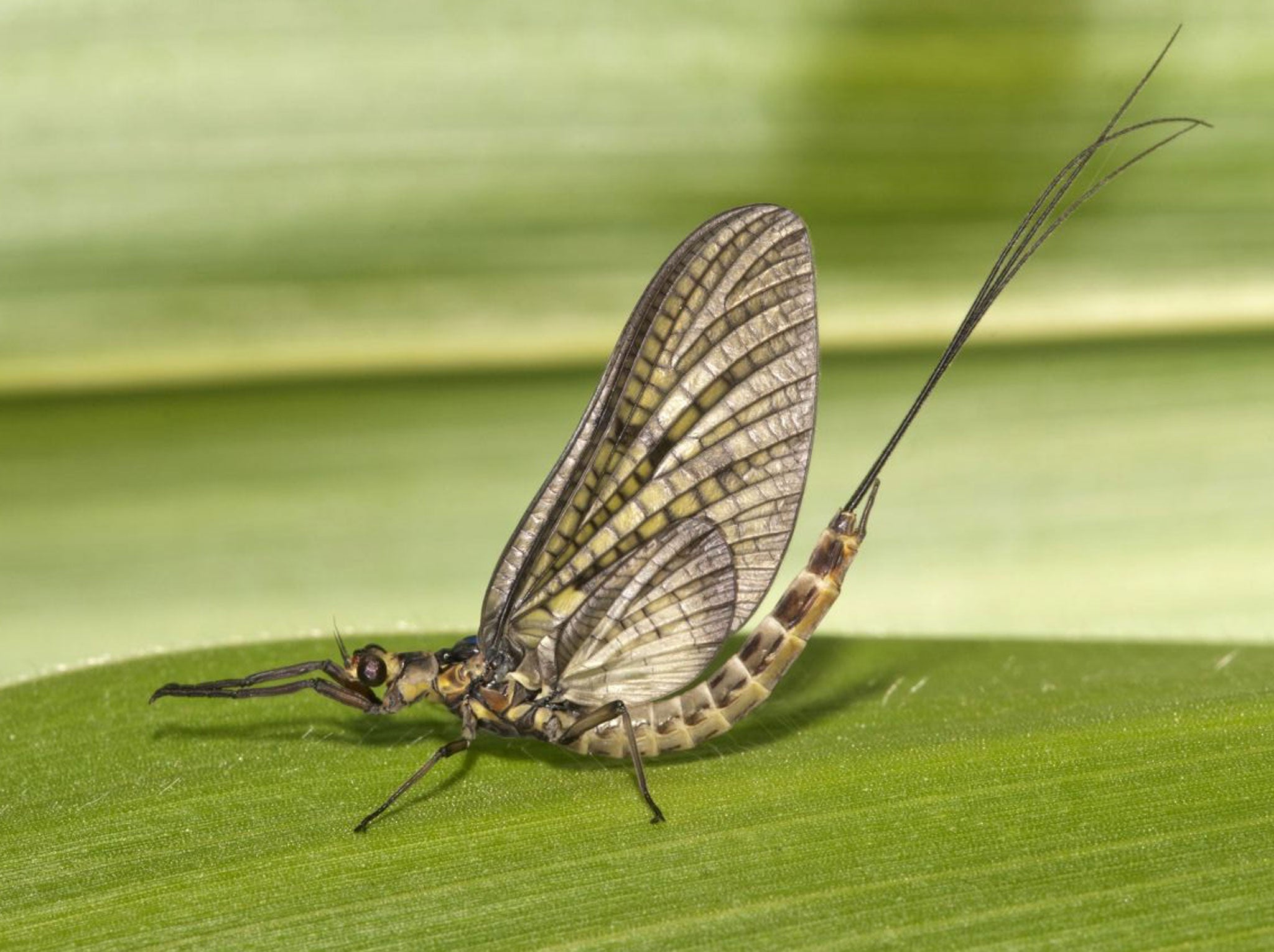Nature Studies: Mayflies offer gripping scenes of mass birth, mass sex and violent death
You don't need to go on safari in Africa to encounter a gripping wildlife spectacle. In England there's one coming to an end just about now

Your support helps us to tell the story
From reproductive rights to climate change to Big Tech, The Independent is on the ground when the story is developing. Whether it's investigating the financials of Elon Musk's pro-Trump PAC or producing our latest documentary, 'The A Word', which shines a light on the American women fighting for reproductive rights, we know how important it is to parse out the facts from the messaging.
At such a critical moment in US history, we need reporters on the ground. Your donation allows us to keep sending journalists to speak to both sides of the story.
The Independent is trusted by Americans across the entire political spectrum. And unlike many other quality news outlets, we choose not to lock Americans out of our reporting and analysis with paywalls. We believe quality journalism should be available to everyone, paid for by those who can afford it.
Your support makes all the difference.Wildlife spectacle is something to encounter abroad, we tend to think, perhaps reaching its peak in Africa with the great annual migrations of wildebeest and zebra from the Serengeti to the Masai Mara, on the Kenya-Tanzania border; as many safari tourists witness, the thundering thousands are preyed upon during their journeys by lions and hyenas, and even crocodiles as they cross the Mara river, in scenes of unforgettable drama.
Nothing like that in Britain, you might think, certainly not in the cosy and unchallenging countryside of southern England; but you’d be wrong. There is a gripping English wildlife spectacle, coming to an end just about now, which involves thousands of individual creatures in scenes of mass birth, mass sex and violent death; the only difference is one of scale.
For these creatures are mayflies, the graceful, butterfly-sized upwing flies of our purer rivers, especially the southern chalk streams like the Hampshire Test and the Berkshire Kennet. Every year, they hatch in enormous numbers, mate, lay their eggs in their river and then fall exhausted to the surface where they are pounced on with unremitting violence by trout. It’s a spectacle and a half, and I’ve just been watching it on the Dorset Frome, Thomas Hardy’s river which flows through Dorchester (and is pronounced “Froom”, as opposed to the three other, quite separate River Fromes in Somerset and Gloucestershire, which are pronounced “Froam”).
It happens right at the end of the mayfly’s two-year life cycle, all but the last day of which is spent underwater as a nymph, a wingless larva; the part we witness, the elegant life in the air, is over so quickly, so ephemeral, that the mayfly insect order is known as the ephemeroptera.
It starts when the nymph swims to the surface and changes into an adult mayfly, before seeking shelter in bankside vegetation. This is because, uniquely among insects, mayflies need to moult again after emerging as adults, before they are sexually mature.
When I arrived at the river, they were everywhere in the buttercup-speckled water meadows, thousands of them newly hatched and clinging to the grass stems, waiting for the world to warm up. And when it did, and they had shed another skin, the males began their courtship dance.
They bounce. That’s the only word for it. They fly up vertically, to 12 or 15 feet perhaps, then parachute back down to about four feet from the ground; but the return back up again is so abrupt that they appear to have landed on an invisible trampoline. Watching a mass swarm of them bouncing in the air is like watching kids on a bouncy castle, and it is a peculiar feeling to ascribe a human exclamation to an insect, the only time I have ever done it: I couldn’t stop imagining them going “wheee!”.
It’s visible from a distance, and the much larger females are attracted, fly in, and are grabbed and inseminated; then, while the males fly off to die in the grass, the females head back to the water to lay their eggs – they’re now known as spinners, from their spinning, egg-laying flight – and eventually collapse, spent and helpless in the surface film.
The phenomenon is known as a fall of spinners, and when it happens on any sort of scale, it brings the river magically alive. The trout go mad; even the big ones will snatch these lumps of protein in slashing, lacerating surges, and every pool holds rising fish. I watched from the bankside of the Frome as the light began to fade and the mayfly spinners floated down to the surface and the trout rose up to take them. Splash after splash. Ker-ploop. Pe-loosh. A watercourse vibrating with life and death.
It may not have been crocodiles grabbing zebras, but I tell you, I was enthralled.
Twitter: @mjpmccarthy
Join our commenting forum
Join thought-provoking conversations, follow other Independent readers and see their replies
Comments